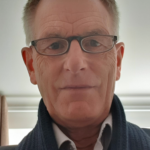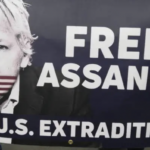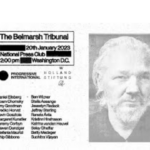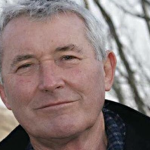The Australian Government’s Improper Use of Espionage Charges

This article will outline the accused businessman Alexander Csergo’s appearance in court recently following up one of our articles titled espionage and foreign interference offences in Australia and detail the specific allegations.
From there it will show how a former attorney-general representing the accused intends to counter the allegations after which there will be a summary of a particular form of Chinese cultural business negotiations.
Next you will see who opposes the updated espionage laws of 2018 and finally Mr Csergo’s tertiary, business and community credentials will be revealed.
Court appearance via video link
Crown prosecutors allege espionage whilst accused claims Commonwealth conspiracy and will sue for destroying career & business in a conspiracy theory gone wrong.
A Shanghai based consulting business executive Alexander Csergo charged with a form of espionage is reputed to be a multi award-winning president of Conversys a global innovation & transformation company. In other words consultation experts in information technology and artificial intelligence including all associated sophisticated technologies therein.
Charged with a foreign interference offence magistrate Michael Barko in refusing Mr Csergo bail whilst appearing via video link from Parklea correctional centre where he is being held as a high security inmate said that the accused was a “sophisticated worldly businessperson” who had been on the radar of Australian intelligence for some time. The magistrate also said that the prosecution had a strong case against Mr Csergo who has resided in China for many years despite adding that Mr Csergo was entitled to the presumption of innocence. The matter returns to court in mid-June with Mr Csergo slumping in his seat when bail was denied.
Specific allegations
The court was told that the accused businessman was asked to provide dossiers in relation to the Australian, United Kingdom and the United States of America (AUKUS) alliance which is a trilateral security pact and in particular on the AUKUS agreement between the United States and Australia regarding the building of nuclear-powered submarines, iron ore & lithium mining and any associated risks therein.
Also requested was a dossier on the Quadrilateral Security Dialogue (QSD) commonly referred to as QUAD alliance which is Australia’s partnership with India, Japan and the United States. All four countries are intent on making sure that the Indo-Pacific region is stable, focussing amongst other things on core regional priorities such as counter-terrorism – maritime security – countering disinformation – ransomware including humanitarian and disaster relief.
In return Mr Csergo was allegedly handed envelopes containing cash.
The NSW office of public prosecutions lawyer Connor McCraith also alleged that Mr Csergo during several weeks of interrogation by the Australian Security and Intelligence Organisation (ASIO) had made admissions of suspecting the two people who had approached him were spies. The court was also told that Mr Csergo has links to the Chinese Ministry of State Security (MSS) and that the Australian authorities would have been told of the requests by a reasonable person but were not by Mr Csergo.
Countering the allegations
Bernard Collaery former attorney-general of the Australian Capital Territory (ACT) acting for the Bondi businessman countered the prosecution’s allegations by stating Mr Csergo was an experienced businessman in relation to Chinese modus operandi of business negotiations and that although envelopes of cash may have sinister connotations in Australia it mightn’t be seen as such in China.
However, importantly the defence lawyer appeared to have the answer to what may amount to a conspiracy theory in that it is claimed that the material contained within the dossiers was garnered from publicly available information and therefore couldn’t reach the benchmark to be considered espionage. Further the barrister stated that the provision of open-source documents was part of a consulting arrangement during China’s Covid-19 pandemic lockdown.
An example of the publicly available information was the speech by the U.S. president Joe Biden in conjunction with Australia and Britain’s prime ministers announcing details of the submarine agreements last month. In addition the barrister stated that Mr Csergo had been lauded for his work throughout a significant number of years in developing Australia/China business relationships.
The criminal charge
Let’s run through what the prosecution must prove to sustain this charge.
1. You engaged in conduct is neutral at this moment
2. You conduct was on behalf of, or in collaboration with, a foreign principal, or a person acting on behalf of a foreign principal, or was directed, funded or supervised by a foreign principal, or a person acting on behalf of a foreign principal,
Answer: No evidence of this whatsoever unless Mr Csergo said that Ken and Evelyn looked Chinese. Ken and Evelyn are certainly not Chinese names.
3. You were reckless as to whether your conduct would:
- Influence a political or governmental process of the Commonwealth, or of a territory within the Commonwealth,
- Influence the exercise of an Australian democrat or political right or duty, whether within Australia or overseas,
- Support intelligence activities or a foreign principal, or
- Prejudice Australia’s national security,
Answer: No evidence of this occurring.
And:
4. Any part of your conduct:
- Was covert or involved deception,
- Involved a threat to cause serious harm,
or - Involved a demand with menaces.
Answer: No evidence of this occurring.
You were ‘reckless’ if you were aware that there was a substantial risk that your conduct would bring about a state of affairs described in (3) above, and it was unjustifiable to take the risk but you went ahead with your actions regardless.
Answer: No evidence of this whatsoever.
The definitions, defences, limitations on prosecution and secrecy rules that apply to an offence under 92.2(1) also apply to this one.
So we can see why it may turn out to be a travesty of justice for Mr Csergo to face the charge he is facing due to it being uncertain precisely who were Ken and Evelyn as the people who approached Mr Csergo are being called.
There are plenty of assumptions that they were spies but hardly proof based on beyond reasonable doubt absent a confession particularly taking into account that it may well turn out that all of the material within the dossiers was publicly available.
Guanxi
The prosecutor made much of meetings between the suspected Chinese agents and Mr Csergo in occasionally empty cafes however there is a saying in Chinese which is Guanxi where unlike in the West, Guanxi business relationships are rarely conducted through formal meetings but by spending time getting to know one another via tea sessions and dinners or other social events. Whilst this concept is open to corruption it is well accepted in some quarters of Chinese culture that Guanxi is not unethical but sometimes interpreted as such by those unacquainted with it and Chinese culture.
Whilst some aspects of Guanxi may contain elements of untoward behaviour it may also be considered in the accused’s case to indicate a reasonable hypothesis consistent with innocence. The reason being that such behaviour due to the moral and ethical frameworks is designed to maintain long term relationships which foster decent behaviour. Therefore not much stock can be placed on the prosecution’s assertion that the meetings in cafes was a sign of clandestine behaviour by a defendant with no prior criminal history but rather who was an upstanding member of the community.
It is indeed only several years ago that China’s central bank warned from Shanghai that rejecting cash as a payment for goods or services was illegal.
The scope of espionage laws too broad
The Law Council of Australia had long campaigned that the scope of the foreign interference laws were too broad. As indeed were many Australian charities, media companies whose journalists could face imprisonment for possessing sensitive information and Universities Australia concerned about research collaborations with overseas institutions. Further the inspector-general of intelligence and security (IGIS) which has oversight of ASIO is concerned that its investigators could breach the new laws simply by doing what they are paid to do. At the time the new espionage laws received royal assent, the university of NSW was in receipt of $30 million for a technology project.
The accused businessman’s tertiary business and social credentials
Mr Csergo graduated from the university of NSW with bachelor of literature – psychology – philosophy including science and technology. Amongst his many obvious business successes was involvement in the digital account concerning Volkswagen Group China and Jaguar Land Rover for China’s first automotive predictive sales platform.
Moving on in 2017 he became president of global innovation & transformation at Conversys which provides industry transformative solutions for automotive, telecom and media industries but also corporates strategic & operational planning. Also provided at Conversys was provision of IT equipment for companies to support government owned media assets and the experts tell us that China has many businesses which are government owned.
One such business being China media group encompassing Central Radio and Television General Station also known as the Voice of China. Ironically this company was founded the same year that the new espionage laws were passed. It is within Conversys that the president appears to have the wherewithal to address some of the allegations concerning his belief that the two people who it is inferred were Chinese ministry of state security operatives for that would be a frequent occurrence in the Chinese business world. China has in excess of 150,000 state owned enterprises (SOEs) with the total assets several years ago reaching US$78.08 trillion with 126 SOEs on the 2022 Fortune 500 list surpassing the U.S who had 124.
Mr Csergo’s social credentials include that he was acclaimed for his part in the development of productive business relationships between Australia and China as shown by his successes in a business sense.
In a 2023 paper by the Georgetown journal of international studies (SFS) 97 of the larger centrally owned companies are directly supervised by the State-owned Assets Supervision and Administration Commission (SASAC) with now having 460,000 branches and sub-enterprises throughout mainland China.
The statistics are subject to interpretation of precisely what constitutes a state-owned enterprise. It is unclear from the available information across all sectors if it is a fully owned government enterprise or an entity partially owned by the government.
Mid-June is not too far away for clarification though it may seem like a lifetime for the multi-award winning highly qualified academic businessman.






